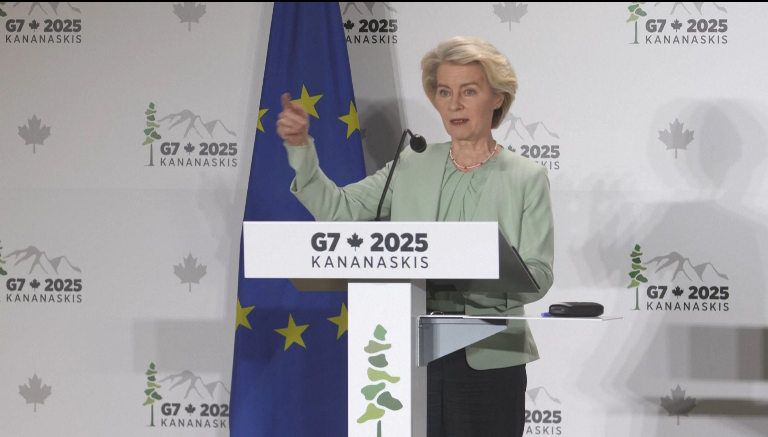Steel industry in focus as G7 prepares coordinated response to global challenges
by David Fleschen

In a statement ahead of the G7 Summit, European Commission President Ursula von der Leyen highlighted the steel sector as a critical area of concern in the face of growing geopolitical and economic instability. Speaking at a joint press conference with President António Costa, von der Leyen pointed to structural trade distortions and the need for coordinated action among G7 partners.
“This brings me to my second point: economic security. It is a challenge we all have a crucial stake in,” von der Leyen said. “Because all G7 countries are facing aggressive trade practices from non-market economies. From industrial overcapacity to weaponizing economic dependencies. These practices must be addressed. And because they affect all of us, we must respond together. And bring an end to the era of globalism without guardrails.”
Specifically referencing industrial sectors impacted by such practices, she continued: “We must tackle distortions in other key sectors. Steel, for example, and pharmaceutical products. And we must counter, together, non-market policies and practices.”
Her remarks follow growing concern in the European steel industry over issues such as foreign subsidies, dumping, and overcapacity—particularly from producers operating outside the rules of the market economy. Industry groups have long called for stronger enforcement of fair trade rules and improved coordination among Western economies to protect domestic steelmakers.
Von der Leyen also addressed broader economic instability and its impact on trade. “Today, trade tensions persist. The risks are no longer abstract. They are material, and mounting,” she said. “When companies are not sure what conditions they will face tomorrow, they delay investment today. When households expect price hikes, they stop spending.”
She emphasized the importance of keeping trade “fair, predictable and open” among G7 partners, warning: “Tariffs, for example, do not just impact exporters. They are like taxes, paid by families and businesses in importing countries.”
Source and Photo: European Commission

